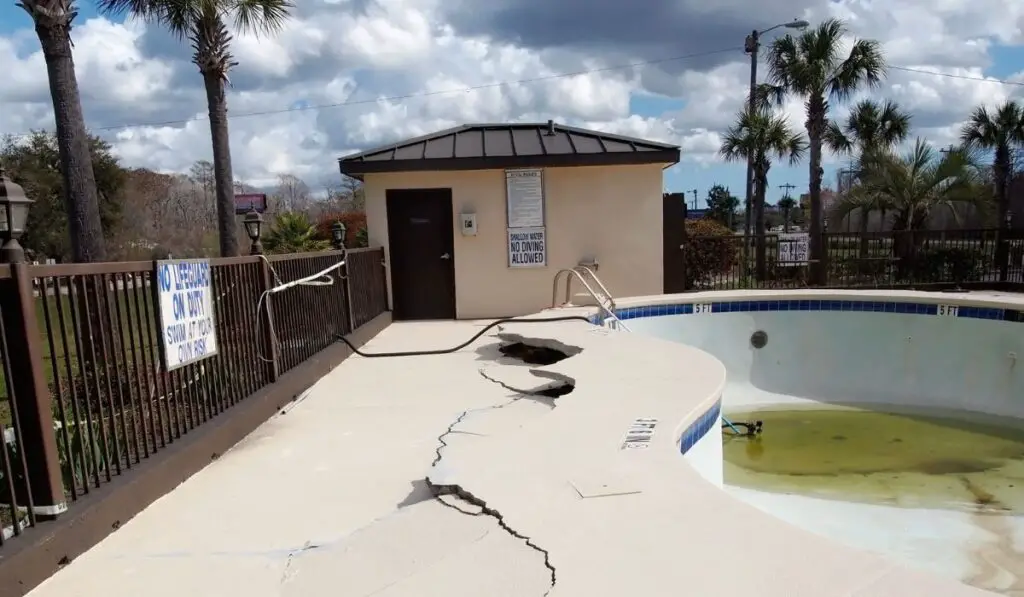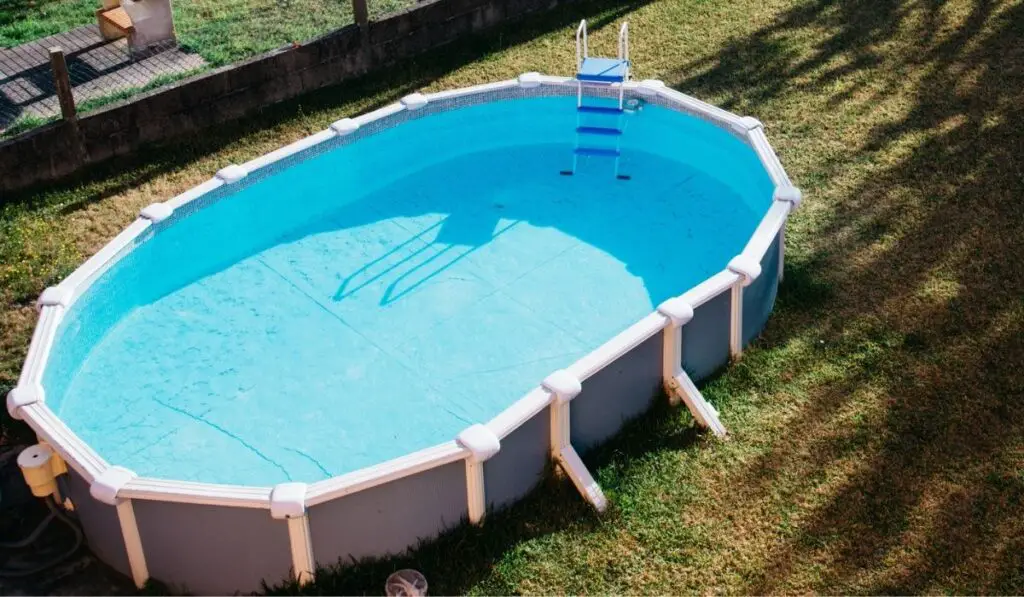An above-ground pool provides an effective way to counter the sweltering summer heat especially if you have yard and budget restrictions. However, since these pools are generally described as impermanent, you may be worried about just how long your pool will last before it breaks.
Above ground pools break more easily than in-ground pools. Still, how long they last before breaking depends on a variety of factors from the pool type to your maintenance schedule. They’re not going to just break spontaneously, but they are overall less durable and have a lower life expectancy.
Let’s find out what might cause an above-ground pool to break, how long they can realistically last, and how to get the best out of your pool before it reaches its end. Obviously driving a car into the side of an above-ground pool will “break” it, but what about normal, everyday use? What should you expect?
Can Above-Ground Pools Break Easily?

While both in-ground and above-ground pools are susceptible to damages and breaks, above ground pools definitely break more easily. This is mainly because they are designed to be temporary. Above-ground pools are made of various structural frames that are vulnerable to tears and leaks.
Since they are literally above the ground, above-ground pool walls are not protected and supported by the ground. They are exposed to the elements and other things that may damage them, including people.
What Causes Above Ground Pools to Collapse?
Poor installation, improper maintenance, harsh weather, and age can all cause an above ground to collapse.
- Uneven ground: Many homeowners choose to save money by avoiding having the ground properly leveled before placing their above-ground pool. Uneven ground forces the water weight to one side of the pool. The unbalanced pressure can cause the wall to fail and the pool to collapse.
- Poor assembly: If you decide to install an above-ground pool yourself, you must follow the instructions on then manual to the letter.
If you misplace the screws and brackets while assembling the frame, for example, it won’t be able to handle the weight of the water and your pool will inevitably collapse.
- Poor maintenance: Metal fasteners that hold the pool’s frame together don’t last forever. They can come loose or corrode with time. This causes the frame to separate due to water pressure and it doesn’t take long before the pool collapses.
- Harsh weather: Storms and frequent weather changes cause wear and tear to the pool structure, which can lead to collapse. Ice and snow collecting on the pool cover can also cause pool collapse due to the extra weight.
- Age: As the parts of the pool age, they are more likely to fail and contribute to a pool collapse.
How Long Do Above-Ground Pools Last?
Above-ground pools aren’t meant to be permanent structures. They eventually break and demand to be replaced. How long they last before breaking down depends on a variety of factors. These include:
Pool type: For above-ground pools, pool type is typically determined by the structural frame. Each pool type has a different life span. Here are some different pool types and how long you can expect each to last:
- Inflatable pools: These tend to be the cheapest and most delicate. They have the shortest lifespan of between 1 and 3 years.
- Steel frame pools: They are very sturdy but are prone to warping, denting, corrosion, and rust. They can last for 5 to 10 years.
- Resin frame pools: These pools are not susceptible to rust or corrosion but can be damaged by extremely hot or cold temperatures. They can last for 8 to 15 years.
- Hybrid pools: They are the sturdiest, most resistant, and longest lasting with an average lifespan of 10 to 20 years.
Climate: Harsh climate significantly impacts the longevity of above ground pools since their frames are not protected from the elements by the ground, as is the case with in-ground pools. Extreme weather conditions that influence how long a pool lasts include:
- Scorching temperatures: Extreme heat can weaken metal frames and liners by causing warping and expansion, respectively.
- Freezing temperatures: The cold can also wreak havoc on the pool’s frame, liner, plumbing, and other parts.
- Strong winds: Winds can weaken the pool by pushing debris into its walls.
- Storms and floods: Certain weather conditions can throw the water chemistry out of balance, shift the ground, and cause other changes that eventually damage the pool.
Frequency of use: Frequent use of an above-ground pool, especially by many people, weakens its frame at a faster rate. How you use the pool also determines how long it will last. Tips for using an above-ground pool include:
- Keep animals out of the pool, especially those with sharp nails.
- Keep toys with sharp points and edges out of the pool.
- Don’t straddle or sit on the pool’s walls.
- Use the ladder to climb in and out of the pool.
Maintenance schedule: How well a pool is maintained determines how long it lasts.
How to Maintain an Above-Ground Pool

Above-ground pools are usually easier to maintain than in-ground pools. However, that’s why it’s often tempting to put off maintenance until it is too late.
Water problems, liner issues, frame instability, and other problems that result from poor maintenance are expensive to fix and reduce the lifespan of your pool.
Above-ground pools require other forms of maintenance in addition to the basic pool maintenance practices of adding algicides, clarifiers, and balancing the water pH. Maintaining an above-ground pool entails:
- Follow a maintenance checklist: Make sure you follow the standard daily and weekly pool maintenance checklist. This involves activities such as testing the pH levels, emptying the skimmer and pump baskets, adding chlorine tablets, cleaning the pool area, and backwashing or cleaning the filter.
- Corrosion prevention: Pool maintenance for above-ground pools should also involve checking for corroded or loose fasteners on the frame and tightening or replacing them when necessary. For pools with sheet metal frames, paint or treat any sign of rust to prevent breakdown and collapse.
- Winterizing: The pool needs to be winterized at the end of the swimming season to prevent damage during winter.
How to Winterize Your Above-Ground Pool Correctly
- Leave some water in your pool during winter to prevent damage from hydrostatic pressure. Leaving too much water, however, may cause damage to the frame due to water expansion.
- Pour pool-grade antifreeze (on Amazon) through the return fittings and close them with threaded caps.
- Use an appropriately sized winter cover to cover your pool.
- Add air pillows inside the pool cover to prevent melting snow and ice from pooling in the center and adding pressure to the frame.
- Remove the pool ladder and disconnect the motor and pump to store in a safe, dry place.
